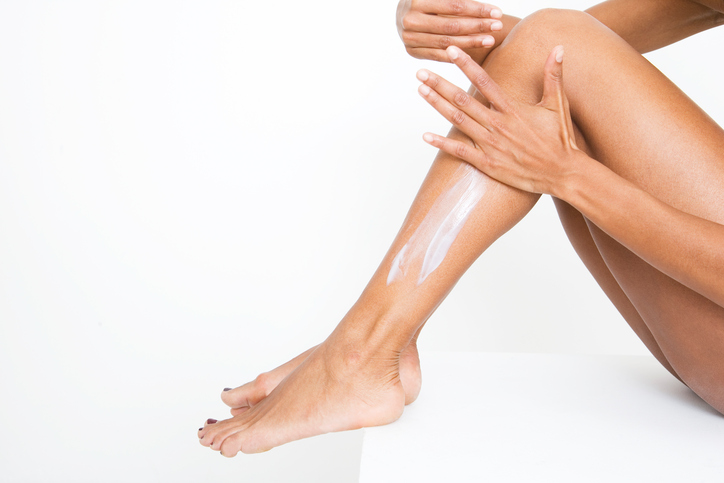Eczema: How To Treat Winter Flare Ups

 Dry skin that is itchy and sensitive may sound normal. Whether it is due to a drastic weather change, like winter, or simply forgetting to put on your lotion, this itch may seem minute. However, many people experience these dry, itchy patches of the skin that can be embarrassing and painful called atopic dermatitis, or commonly called eczema.
Dry skin that is itchy and sensitive may sound normal. Whether it is due to a drastic weather change, like winter, or simply forgetting to put on your lotion, this itch may seem minute. However, many people experience these dry, itchy patches of the skin that can be embarrassing and painful called atopic dermatitis, or commonly called eczema.
Eczema is a skin condition that affects approximately 31.6 million Americans, according to the National Eczema Association. Sixteen percent of these affected people are Black Americans, according to a US National Library of Medicine National Institute of Health study. Eczema on Black skin can also be different than on the skin of other races.
This dermatological condition is a dry skin condition. Although it varies from person to person, it often presents as scaling, flaking, itching, scarring, and redness. In more severe cases, this extreme itching can worsen the skin, causing it to crack, bleed, and leave open lesions.
Dr. Cara McDonald, a dermatologist, shares her professional opinion on eczema. She says, “In all types of eczema there is a barrier defect in the skin. I explain to my patients that their skin with eczema is like having a brick wall, where you have lost all your mortar; all your bricks are just loose and stuff goes straight through them, rather than being water tight. Something as simple as a moisturizer will replace that mortar and stop the stuff from flowing in.” These open lesions pose risks to infection. This condition can make daily tasks painful, and difficult to complete.
Knowing your triggers of eczema is crucial. These triggers commonly are the use of products, food allergies, and stress. Everyday products, even those that are natural, can irritate the skin. These can include hand soaps, laundry detergents, body washes, shampoos, and cleaning products. According to the National Eczema Association, other common irritants include: metals, cigarette smoke, fragrances, specific fabrics, and formaldehyde (which can be found in household disinfectants and adhesives).
The body reacts to stress in the same way. If it is stress for work, classes, relationships, other personal situations, or being worried about their eczema, the body will react to it. Harsh weather conditions, like winter, can also stress the skin. Avoiding these triggers will play a large role in controlling flare ups.
These three methods are key to treating and soothing the skin:

Create a skincare routine.
Maintaining a routine can help control your eczema. The skin reacts better with consistency. Once you have a created a routine, sticking to it will help familiarize your skin with products.
Bathing.
Eczema is largely affected by moisture. It occurs when your skin is not retaining water (moisture). It loses moisture easily due to wind, cold temperatures, and soaps. For this reason, baths are a great way to treat dry skin and restore moisture. When bathing, remember to use lukewarm water, avoid scrubbing, and use a gentle cleanser.

Moisturize.
Moisturizing is key because it helps your skin retain the water in the body. Loss of this will lead to flare ups. Using a high-oil content moisturizer helps boost hydration and serves as a barrier. Be sure to moisturize frequently, especially areas of the body that are continuously exposed, such as hands, arms and face. Moisturizing after every hand wash or contact with water is critical.
Dr. Cara McDonald states, “The combination of sealing the skin and adding water content to the skin will make it feel softer, feel more moisturized, as well as reduce the break down of the skin and break the viscous cycle that you see in eczema and skin dryness.”
READ: Natural Eczema Lotion
However, dealing with the physical symptoms is just one step. The mental and emotional state of patients is often affected, and needs to be treated as well. People with eczema often deal with the loss of confidence and insecurity. One’s self esteem can be lowered due to personal experiences that one may have. Patients may feel embarrassed ,or self conscious, when it comes to displaying or talking about their skin condition. This can be altered by practicing self confidence.
Eczema can pose limitations and frustrations to many. They can make everyday tasks more complicated and require more attention and caution. Acknowledging the triggers, solutions and its effects on one’s mental state is important to note.




